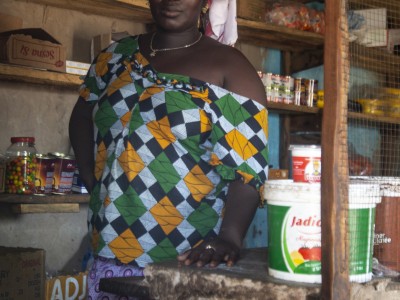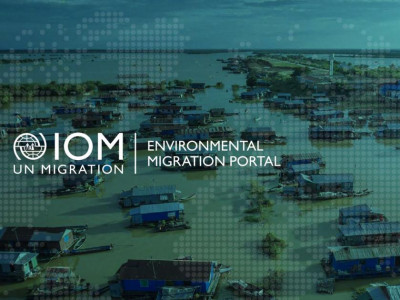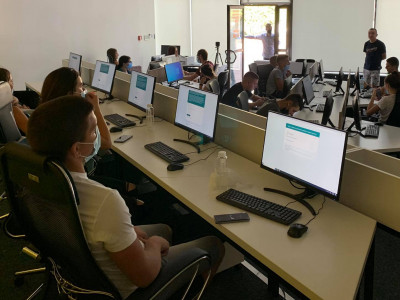Connecting territories through migration and development
Joanne Irvine, jirvine@iom.int
Objectifs de Développement Durable Connexes et Objectifs du Pacte Mondial sur les Migrations
Résumé
This project comes from the JMDI Phase II, a UN Joint Migration and Development Initiative, run in cooperation by IOM, UNDP, ILO, UN Women, UNFPA, UNITAR which took place from 2012 to 2017 and worked to establish a multi-level and multi-stakeholder dialogue to further and better integrate migration into local development plans while setting up Migrants' Reception and Orientation Offices (BAOMs) for returned Moroccan migrants to facilitate the management of migration at local level in the regions of Souss Massa Draa and L'Oriental (specifically in the Communes of Tiznit, Taroudannt, Tinghir, Ammeln, Tafraoute, Arbiaa Sahel, Oum El Guerdan, Tinzert, Azaghar N’irs, Taliouine, Siroua, Ouisselsat).
The regions of Souss Massa Draa and L’Oriental have always had high rates of emigration. Many of these emigrants are now residing in Belgium, France, Germany and the Netherlands, and remittances have played a very important role in fostering local development in both regions. The diaspora is very well organised and structured, as evidenced in the project implementation support provided by the CSO Migration & Development, which is a French civil society organisation founded in 1985 by Moroccan living in Marseilles, France.
The project in Sous Massa successfully strengthened the capacities of local authorities in providing services to migrants by creating and operationalising 12 Helpdesks for returned migrants, the Orientation Offices (aka BAOM), facilitating their access to social benefits earned abroad. The assistance provided by the Orientation Offices have enhanced the integration and well-being of migrants. Moreover, the sustainability of these efforts was ensured through the institutionalisation of these helpdesks by the communes. The project also paved the way to better integrate migration into local development planning by informing and training local authorities on the migration and development nexus. Furthermore, the project successfully facilitated the adoption of a multi-stakeholder and multi-level approach towards migration and development by opening spaces for local dialogue between relevant actors and the migrants residing in these regions.
Objectif clé
The overall objective of the project was to establish a multi-level and multi-stakeholder dialogue to further and better integrate migration into local development plans while setting up Migrants' Reception and Orientation Offices (BAOMs) for returned Moroccan migrants to facilitate the management of migration at local level. This was aimed at reducing negative impacts of migration while stimulating the positive effects of it.
Principales activités
The efforts and main activities carried out are outlined below:
- Process of creating and operationalising the Reception and Orientation Offices (BAOMs).
- Sustainably equipping officers responsible for leading BAOMs.
- Support for returnee Moroccans with their administrative and social rights procedures, particularly in regards to the social rights they acquired during
their stays abroad. - Orient migrants towards relevant regional and national services.
- Information and guidance on investment possibilities and local development.
- Production of knowledge on the migration profiles of the municipality, the specific needs of returnee Moroccans and their potential impact on
development. - Regional multi-stakeholder migration and development teams
were created to encourage further dialogue between the different stakeholders and
levels of territorial governance. - These teams also served to enhance innovative initiatives in the local level management of migration.
Principaux succès ou facteurs innovants, bonnes pratiques et enseignements tirés (si disponibles)
The key lessons learned from this project outline that:
- It is essential that those responsible for strategic planning pay attention
to the work done by the teams. - The involvement of elected officials in the leadership of the teams is a major bonus.
- Regional teams help ensure that commitments made by territorial authorities are sustained and followed up on.
- Special attention must be paid to the leadership of BAOMs.
- The collection and management of data is a challenge for administrations, coordination and capacity building.
- The commitment of elected officials fosters the establishment of dynamic
partnerships. - Institutionalising BAOMs ensures their sustainability.
- Municipalities are critical actors to engage with for enhanced local economic
development.
Bénéficiaires
The beneficiaries of this project were the11 municipalities in Souss-Massa region: on one side, the regional and local authorities and on the other the returnee Moroccans.


